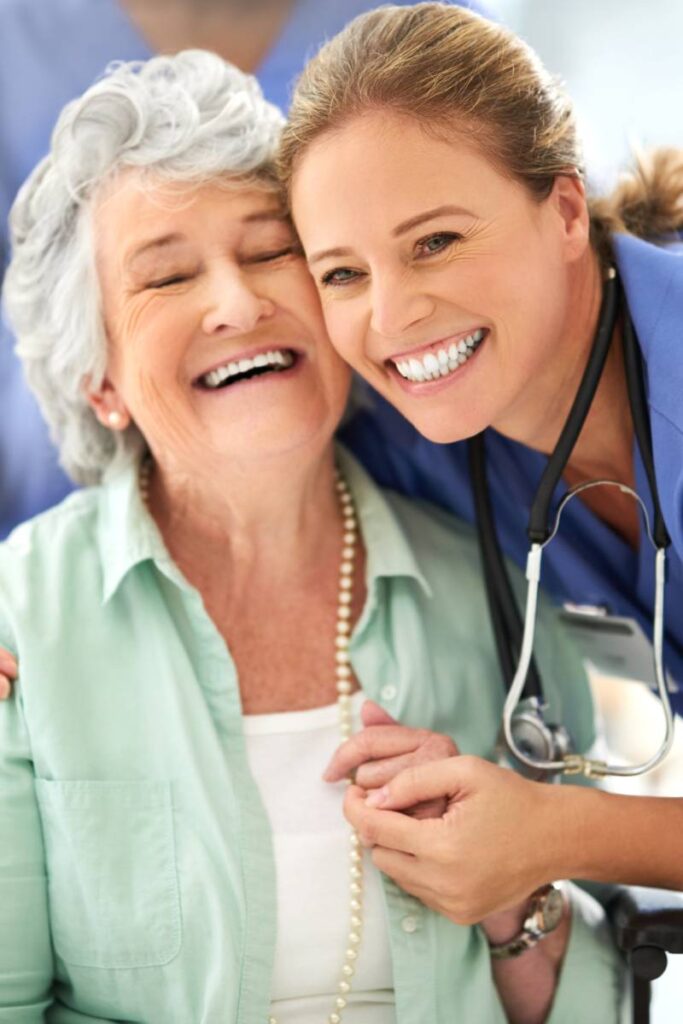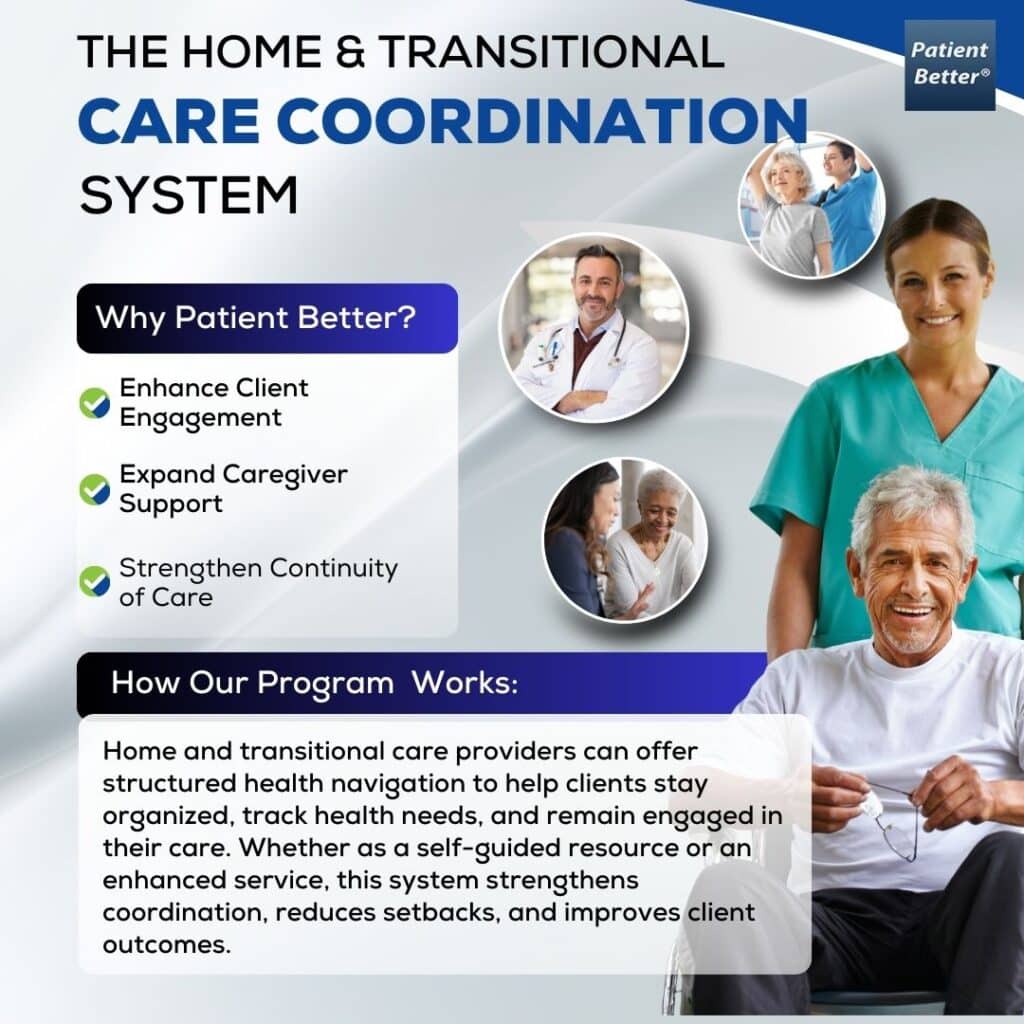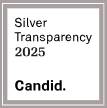A New Initiative Helping Home and Transitional Care Agencies Lead in Care Coordination
The Coordination System Home Care Has Always Needed—Now Without the Overhead
Until now, care coordination systems have been expensive, technology-dependent, or simply out of reach for most non-medical home care agencies. But with the Patient Better Home & Transitional Care Coordination System, that barrier is gone.
This nonprofit-led initiative gives agencies a way to support clients beyond ADLs—by helping families organize, communicate, and follow through with medical care, without adding operational burden or cost.
Because the Patient Better system is already aligned with CMS care coordination objectives and Medicare Advantage engagement strategies, agencies can:
- Stay compliant with regulatory expectations
- Support better continuity of care
- Work in parallel with healthcare providers, insurers, and families
All without software licenses, hiring new staff, or changing how you serve your clients.
Who This Is for and How They Benefit
This system is built for non-medical care providers who want to support families more holistically, without increasing their administrative burden.
Whether you’re a home care agency, a transitional care coordinator, or an independent health advocate—this program helps you extend your impact and strengthen your role in care delivery.
🏠 Home Care Agencies
- Offer a care coordination layer without hiring new staff or adopting expensive software.
- Position your agency as a trusted resource for both daily care and long-term support.
- Build deeper family trust, reduce caregiver burnout, and stay connected to the full care journey.
🔁 Transitional Care Providers & Independent Health Advocates
- Equip clients with structured education and tools to navigate complex transitions—hospital discharge, rehab, diagnosis, or new care teams.
- Reduce reliance on ad hoc support and give families a sustainable system they can use independently.
- Strengthen your professional value and visibility as a care coordination partner.
💡 The Big Picture
With this program, your role doesn’t stop at ADLs.
It evolves into something more powerful: a community partner in lasting care outcomes.
Why This Is the Answer Home Care Has Been Waiting For
Non-medical home care agencies have always been on the front lines of care—but until now, they’ve had no practical way to extend their support into care coordination without burning out staff, blowing the budget, or relying on expensive platforms built for hospitals.
This changes that.
With the Patient Better system, agencies can now:
- Deliver true care coordination—not just ADLs
- Support families and clients as they organize, track, and follow through on medical care
- Stay compliant and community-connected—without extra staffing or tech investments
- Strengthen relationships and reputation as a go-to agency for long-term, holistic support
Whether you’re adding it as a self-guided resource or going deeper with the certified model, this program transforms home care into a comprehensive, future-facing service families can trust.

How the Program Works
1. Distribute Flyers to Clients
When you onboard a new client, simply include the Patient Better Academy flyer in their welcome packet. The flyer includes a unique QR code or link that tracks your agency’s referrals.
2. Families Purchase Directly
Clients or their families can choose to enroll in the Academy by scanning the flyer. You don’t handle billing or logistics—everything is managed through our nonprofit platform.
3. We Track Every Referral
Each purchase made through your referral link is automatically logged under your agency. No manual tracking is required on your end.
4. 10% Give-Back, Directed by You
At the end of the program year (Dec 1–Nov 30), we calculate 10% of total proceeds referred by your agency. Starting December 1, you’ll be invited to direct that amount to:
A nonprofit or charity of your choice
Or The Patient Better Project, where we’ll double the impact to 20% for expanded family access
5. Funds Are Distributed by December 15
We handle all the donation logistics and send you a final impact summary—ready to share with your community or internal teams.
Empower Your Agency & Your Clients—Start Today
The Home & Transitional Care Coordination System helps agencies provide a higher standard of care without adding extra strain to their team.
🔹 Offer it as a resource or train caregivers to implement it.
🔹 Strengthen client outcomes while maintaining agency efficiency.
🔹 Set your agency apart as a leader in care navigation support.
Discover how your agency can integrate this system today.
Disclaimer: This education was brought to you today by The Patient Better Project Inc., a 501(c)(3) organization dedicated to reshaping the way patients and caregivers navigate care. We are committed to empowering individuals with the knowledge and tools necessary to take control of their health journeys, ensuring that everyone can access the care they need with confidence and clarity.
The information provided here is for educational and entertainment purposes only. It is not intended as, nor should it be considered a substitute for professional medical advice, diagnosis, or treatment. Always seek the advice of your physician or other qualified health provider with any questions you may have regarding a medical condition. If you think you may have a medical emergency, immediately call 911 or your local emergency number.

